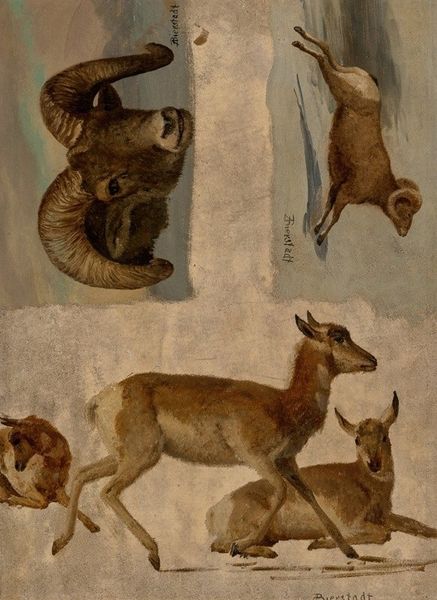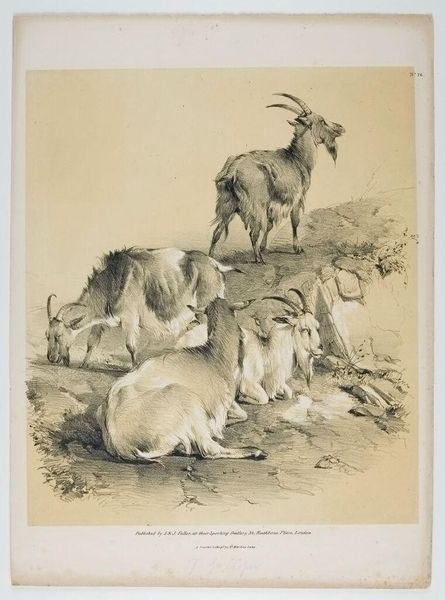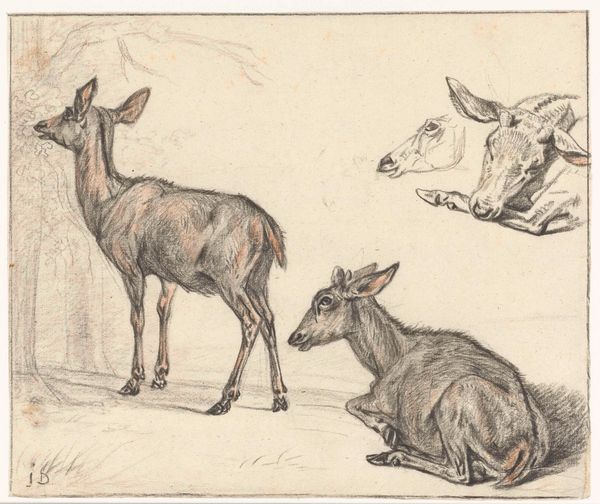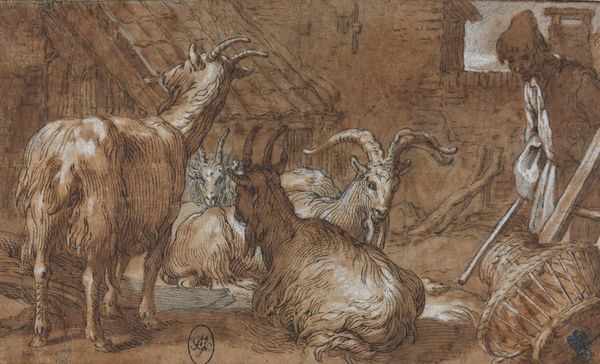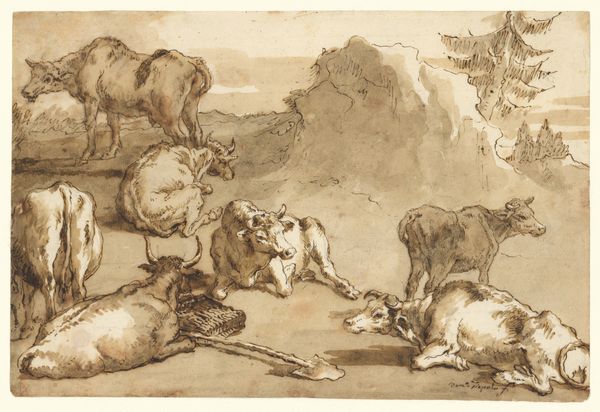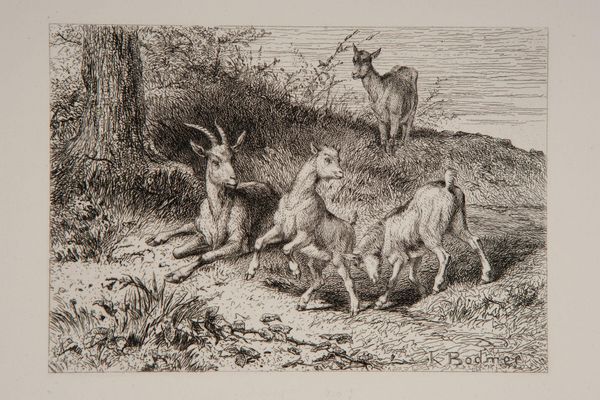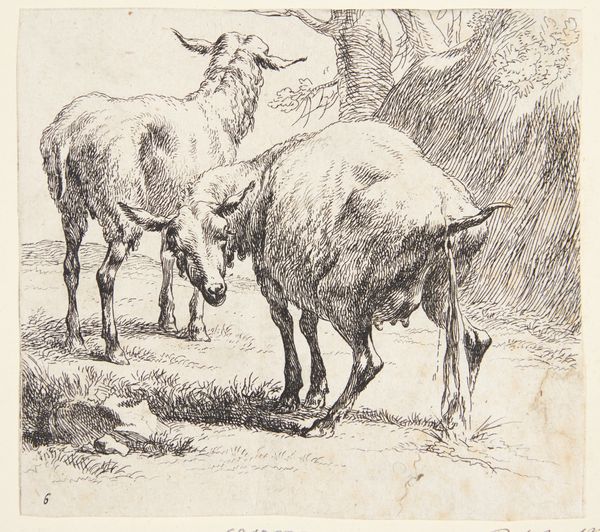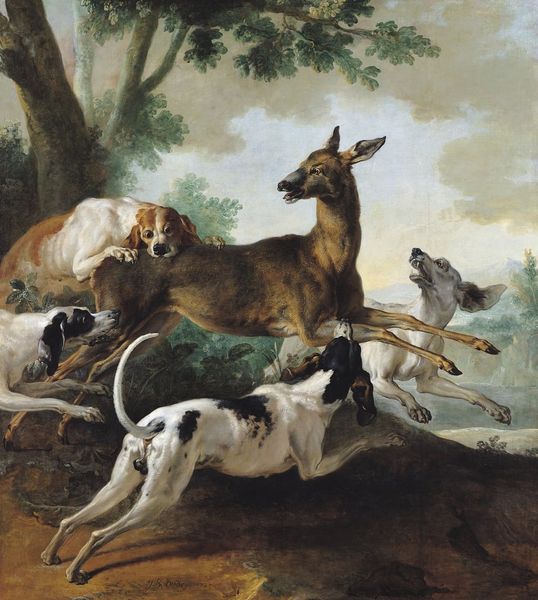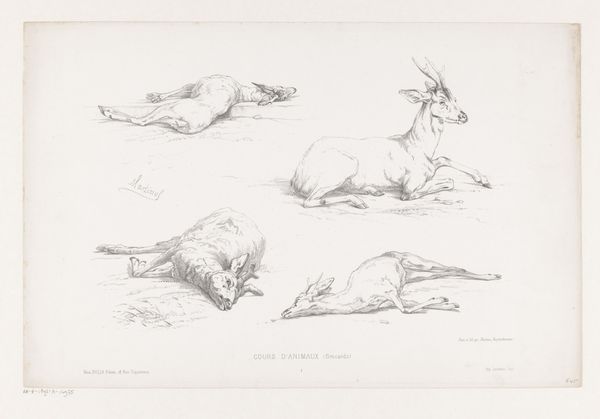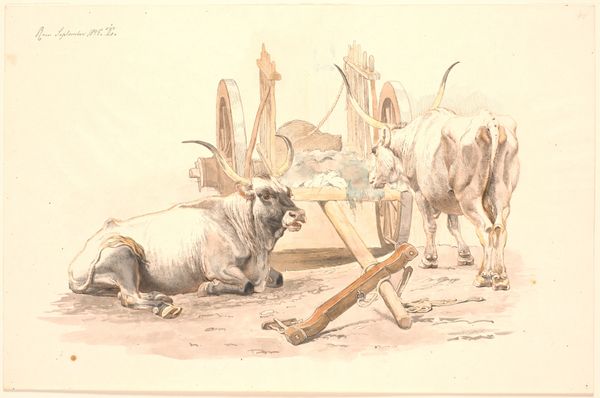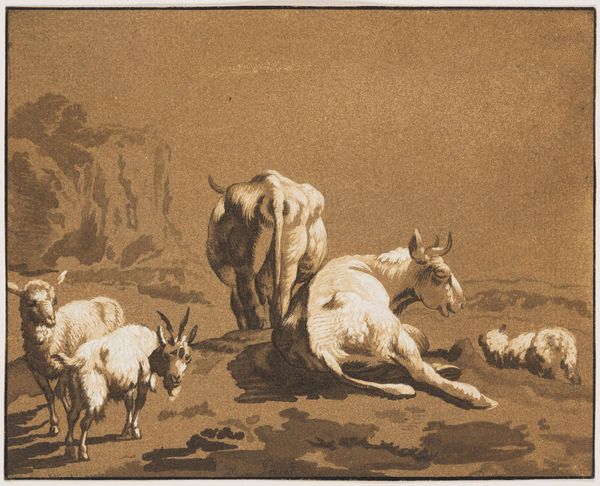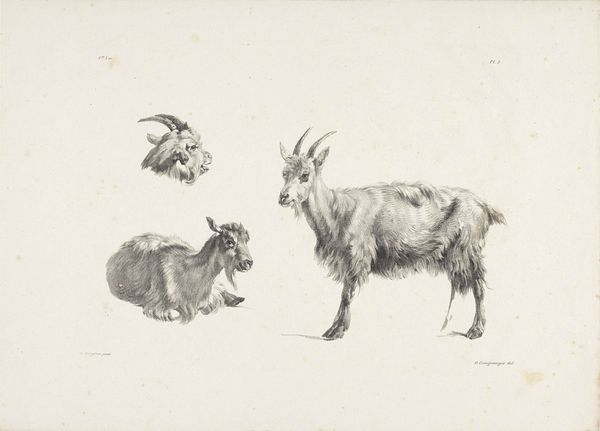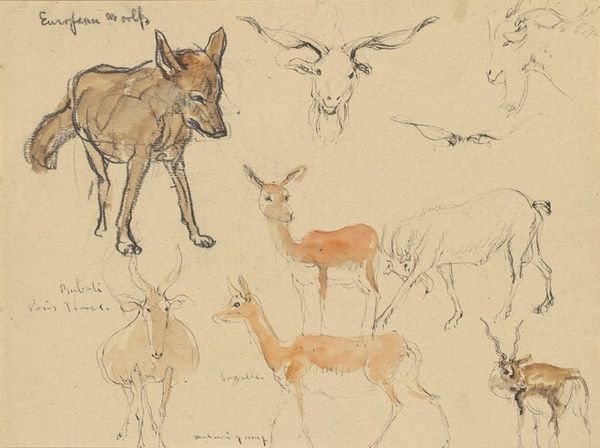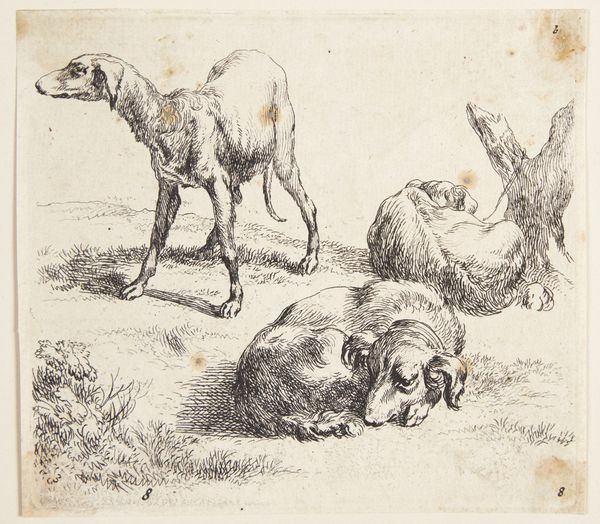
drawing, oil-paint, watercolor
#
drawing
#
animal
#
impressionism
#
oil-paint
#
landscape
#
charcoal drawing
#
oil painting
#
watercolor
#
watercolour illustration
#
genre-painting
#
realism
Copyright: Public Domain: Artvee
Curator: Here we have “Studies of an Isard” by Rosa Bonheur. Look at this lively assembly of goats, quickly rendered in what appears to be oil paint on paper. There is a spontaneity, a sense of immediate observation. What's your initial impression? Editor: It feels almost primal, in a way. These aren't just animals, they’re symbols of resilience, maybe even wildness. I immediately think of the role of animals in folklore, especially those dwelling in the high mountains. Are these Isards particular to one specific range? Curator: Isards, also known as the Pyrenean chamois, are native to the Pyrenees mountains of Europe. Bonheur clearly relished capturing their unique form. Consider the variety of poses. She has really nailed the texture of their coats with just a few strokes. Editor: You're right about the texture. Notice how each pose communicates something different, and even their fur seems to embody individual character and movement. These weren’t simply copies from taxidermied examples but from nature and memory, full of individual nuances. It's as if she's tapping into something deeper than mere representation. Perhaps it ties to ancient earth-mother symbolism often associated with horned creatures? Curator: Possibly! Bonheur, as a woman artist in the 19th century, was keen on bucking trends in the industry. This drawing underscores the prevailing interest in the scientific approach, to which she responded in her unique way. We see this blending of observational drawing with the new technology of manufactured paints. Editor: Her connection to the natural world seems particularly strong here. Considering her unconventional lifestyle – she openly defied gender norms of her time – do you think she consciously employed this symbolism to challenge social conventions, reclaiming the wild feminine through representations of animals like these isards? Curator: Interesting to think about that connection, yes, and maybe further research into this would open an interesting avenue to think more on this subject. Editor: It really has sparked my mind. Curator: Me too. Thanks for providing a lens to help see Bonheur's work differently.
Comments
No comments
Be the first to comment and join the conversation on the ultimate creative platform.
